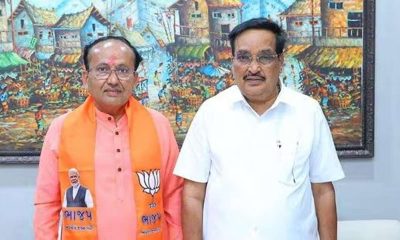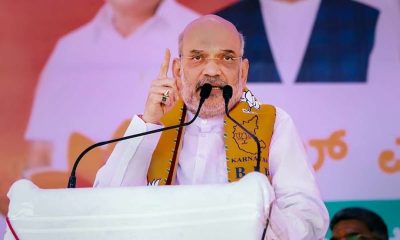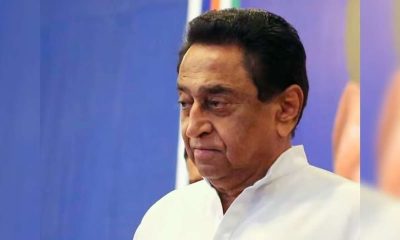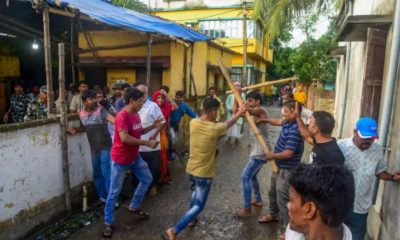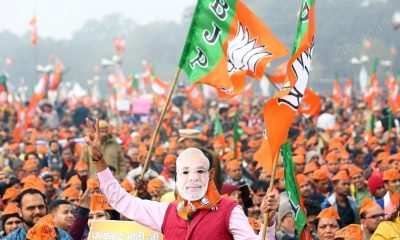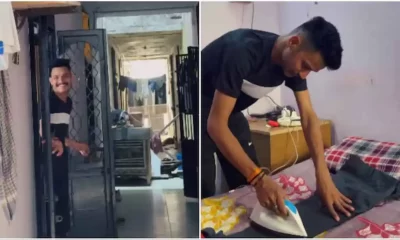India News
Bofors case: CBI does a u-turn, withdraws plea for further investigation

At a time when Prime Minister Narendra Modi and his party BJP were raking up Bofors case to recall how it maligned former PM Rajiv Gandhi’s image, the CBI, in a remarkable u-turn, today (Thursday, May 16) withdrew from a Delhi court its application seeking permission to further probe the case.
Making submission before a court at the Tis Hazari district courts, counsel for the probe agency said that it would decide the future course in the matter later. But at the moment, the agency did not want to pursue the application for permission to further probe the case, the counsel further said.
Meanwhile, advocate Ajay Agarwal, who had also moved an application for further probe into the matter, also moved an application for withdrawing his plea. But when the court threatened to impose costs on him for wasting its time, Agarwal said that he would argue on it. The court agreed to his submission, reported The Hindu.
The CBI told Chief Metropolitan Magistrate Navin Kumar Kashyap that it wants to withdraw the application filed on February 1, 2018. It had moved the trial court seeking permission for further probe in the matter saying it had come across fresh material and evidence.
The agency on Thursday submitted before the court that decision on further course of action would be taken by it and wanted to withdraw the application for now.
Taking note of CBI’s stand, the judge said: “For the reason best known to the CBI, in case they want to withdraw the application, they have the right as they are the applicants.”
The court on December 4, 2018 had questioned as to why the Central Bureau of Investigation (CBI) required its permission to further probe the matter.
The CBI had also filed an appeal in the Supreme Court in February 2, 2018 against the May 31, 2005 verdict of the Delhi high Court discharging all the accused in the case.
The top court had on November 2, 2018 dismissed CBI’s appeal in which it had sought condonation of the 13-year delay in filing the appeal against the high court judgment.
The supreme court had said that it was not convinced with the grounds of the CBI to condone over 4,500 days’ delay in filing the appeal.
However, one of the appeals is still alive in the apex court in which CBI is one of the respondents and the top court on November 2, 2018 said that the agency can assist in the matter as respondent. The top court said the CBI can raise all grounds in the appeal against the high court verdict filed by advocate Ajay Agrawal who has also challenged the judgement.
Also Read: Kamal Haasan booked for Godse remark, his party says comment taken out of context
Agrawal, who has now become a rebel BJP leader after he was denied Lok Sabha ticket from Rai Bareilly in Uttar Pradesh, in 2005 had challenged the high court verdict after the CBI did not file the appeal in the mandatory 90 days period.
The agency had swung into action for a permission for further probe in the case after the Attorney General had orally given it a go ahead to file the appeal in the case in which it cited the October 2017 interview of private detective Michael Hershman, alleging that the then Rajiv Gandhi government had sabotaged his probe.
Justice RS Sodhi (since retired) of the Delhi High Court had on May 31, 2005 quashed the CBI case in the Bofors pay-off scam.
Before the 2005 verdict of Justice Sodhi, another judge of the Delhi High Court, Justice J D Kapoor (since retired), had on February 4, 2004 exonerated the late prime minister in the case and directed the framing of charge of forgery under section 465 of the IPC against Bofors company.
India News
Ramdev, Balkrishna publish bigger apology in newspapers after Supreme Court’s rap
In the apology published, Ramdev and Balkrishna said they unconditionally apologise in their individual capacity as well as on behalf of Patanjali Ayurved for the non-compliance or disobedience of directions/orders of the Supreme Court of India
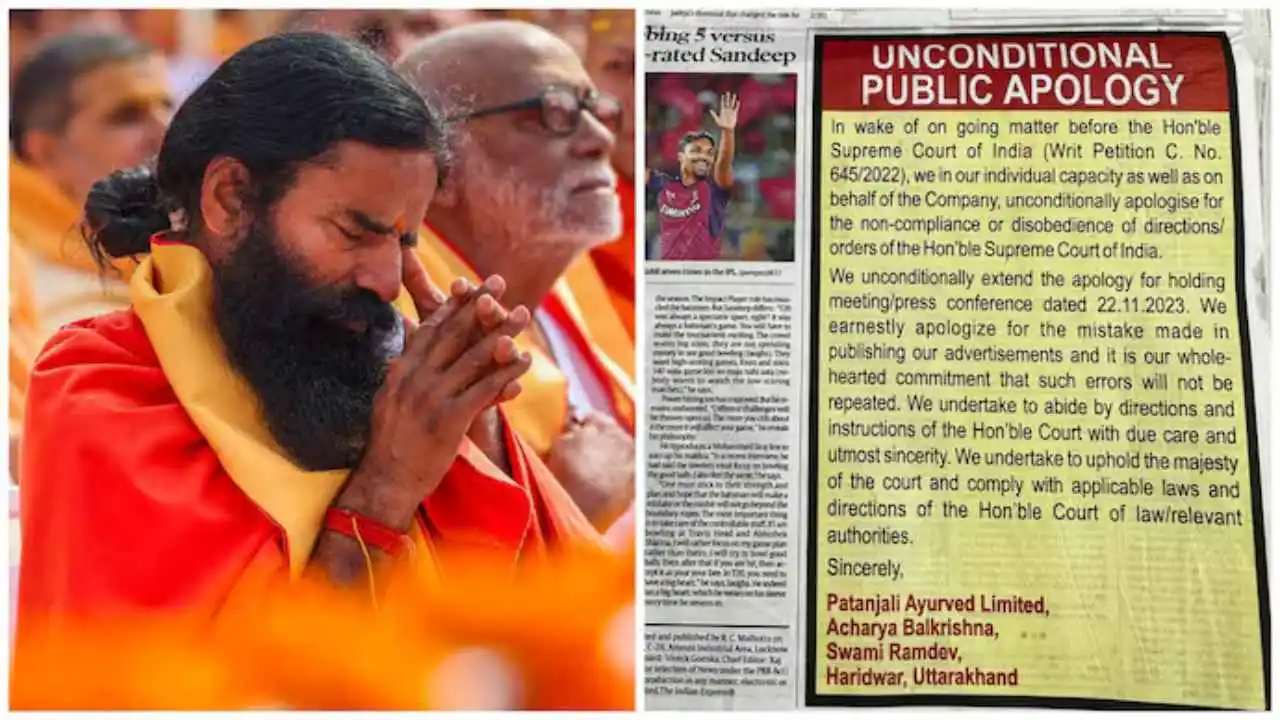
Yoga guru Ramdev and his aide Acharya Balkrishna on Wednesday published a fresh bigger apology in leading newspapers for misleading advertisements of Patanjali’s medicinal products. This time, the apology was bigger in size after the Supreme Court pulled up Patanjali’s Ramdev and Balkrishna for not prominently displaying it earlier.
In the apology published, Ramdev and Balkrishna said they unconditionally apologise in their individual capacity as well as on behalf of Patanjali Ayurved for the non-compliance or disobedience of directions/orders of the Supreme Court of India. The apology said that they earnestly apologise for the mistake made in publishing their advertisements and it is their whole-hearted commitment that such mistakes will not be made again in the future.
During a hearing of the contempt proceedings related to the misleading ads case on Tuesday, the Supreme Court had asked Ramdev and Balkrishna if the size of the apology published in newspapers by Patanjali was similar to full-page advertisements for its products.
Ramdev and Balkrishna had told the Supreme Court Justices Hima Kohli and Ahsanuddin Amanullah that they issued unqualified public apology in as many as 67 newspapers over the issue of misleading ads and they were willing to publish additional apologies for expressing their mistake. The duo said that the cost of the advertisements is Rs 10 lakh.
The Supreme Court bench asked why the apology had been published after one week, just ahead of the case hearing. Justice Kohli also asked if the size of the apology published was the same size as their advertisements? The court also ordered Patanjali to collate the ads and submit them before the Supreme Court bench.
The bench further added that the size of the apologies should not be enlarged and should be supplied to them. The Supreme Court bench wanted to see the actual size. The bench added that they want to see that when they issue an ad it does not mean they have to see it by a microscope.
2024 Lok Sabha Elections
Rahul Gandhi clarifies on wealth survey remark, says aim is to identify injustice
Gandhi further added that everyone should look at Prime Minister Narendra Modi’s reaction and said that the moment he said let’s test how much injustice has been done the BJP started saying that this is an attempt to break down the country.
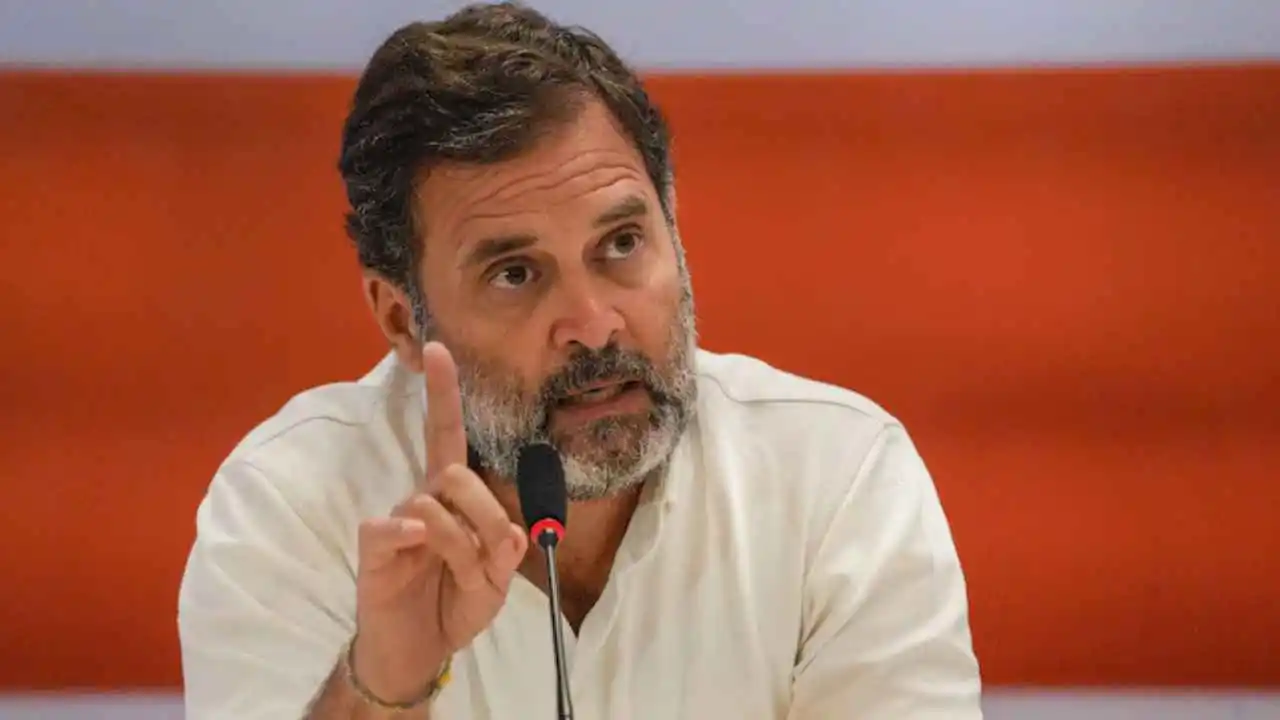
Congress leader Rahul Gandhi on Wednesday took a U-turn on his wealth survey remark and said he only wanted to find out the amount of injustice the nation was facing. Rahul Gandhi was addressing Congress’s Social Justice Conference at Delhi’s Jawahar Bhawan where he clarified that he has not said Congress will take action yet. He said that he was just saying that they will find out how much injustice has been done.
Gandhi further added that everyone should look at Prime Minister Narendra Modi’s reaction and said that the moment he said let’s test how much injustice has been done the BJP started saying that this is an attempt to break down the country. The former Congress chief said through the X-ray (wealth survey), the Congress will get to know the root cause of problem.
Gandhi said it is his life’s mission to ensure justice for the 90 % of the population against whom injustice has been done. He alleged Injustice is being done to 90 percent of Indians and the moment he called for checking this injustice, PM Modi and the BJP started attacking him. Gandhi further added that as soon as the INDIA Bloc will form its government the first thing that would be done is caste census.
On April 7, Rahul Gandhi said Congress, if voted to power, would conduct a financial and institutional survey to ascertain the distribution of wealth among the people in the country. Rahul Gandhi was addressing a public rally in Hyderabad after releasing the Congress’s manifesto where he said the survey will be conducted apart from a nationwide caste census that the party has promised if voted to power.
The former Congress chief also spoke about the Ram Mandir inauguration, and said, not a single Dalit, or a tribal was seen at the temple, or during the inauguration of the new Parliament building. He said 90% of the population understands this.
2024 Lok Sabha Elections
PM Modi says Congress leaders consider themselves above Lord Ram
PM Modi slammed Congress during a rally in Chhattisgarh, ahead of the Lok Sabha elections 2024
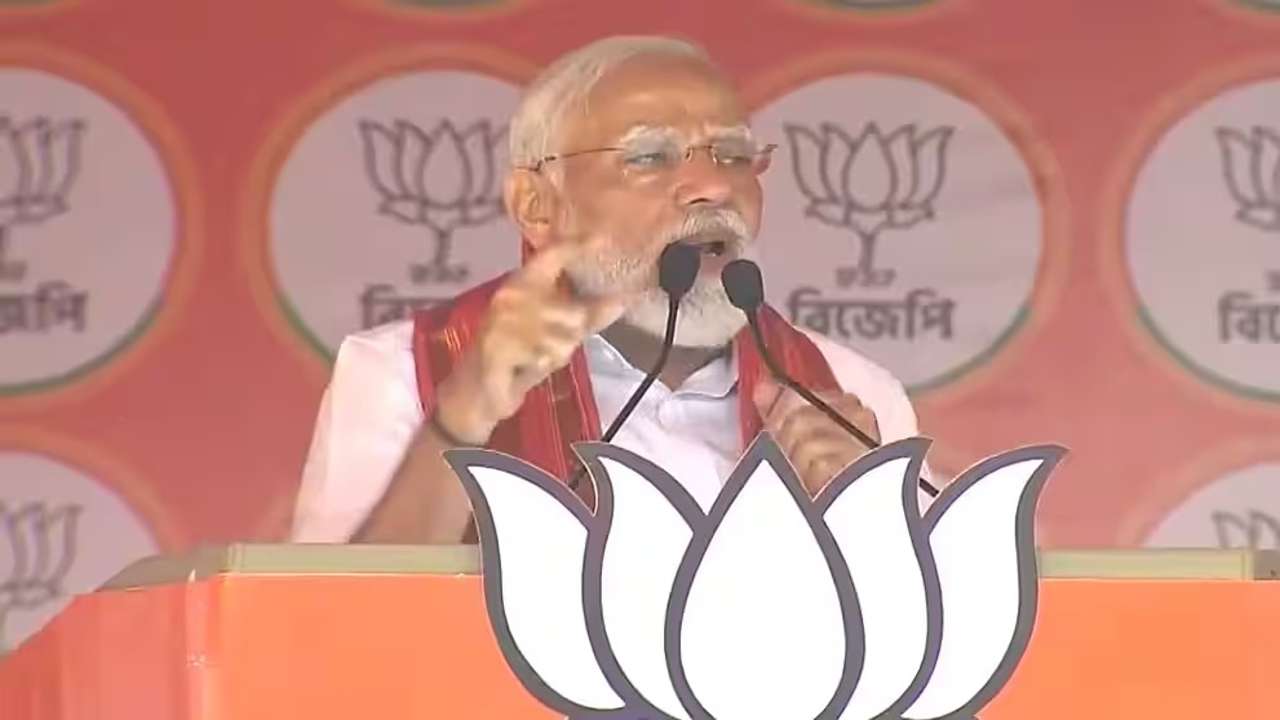
Prime Minister Narendra Modi slammed the Congress party for declining to attend the pran pratishtha ritual at the Ayodhya Ram temple on January 22 this year.
The prime minister said Congress leaders consider themselves above Lord Ram and denied invitation for Pran Pratishtha at Ram Temple, while speaking at a rally in Janjgir-Champa, Chhattisgarh. The PM question the people present at the rally that is it not a disrespect of Mata Shabri? Congress leaders inclination toward appeasement politics runs in their family.
For political appeasement, they won’t think twice about stealing the rights of Adivasis, the poor, and Dalits. Poor, young, and women are BJP’s top priorities, Modi said.
PM Modi criticized the Congress again during the rally for claiming that the BJP would alter the constitution.
The leaders of Congress recite the same old phrases whenever an election is about to happen, the PM said. He also said they claim that if the BJP wins power, it will renounce the constitution and abolish reservations. For how long will you continue selling lies?” he asked.
The prime minister continued saying that nobody can change the Constitution, even if Dr. Babasaheb Ambedkar were to come and insist on it, it wouldn’t happen.
Those in the Congress threaten to break Modi’s head. Nobody can harm Modi as long as the mothers and sisters of this county stands by him. These mothers and sisters are Raksha Kavach, Modi remarked.
The prime minister further attacked the Congress after Viriato Fernandes, the party’s candidate for South Goa, asserted that Goa was forced to adopt the Indian Constitution.
Referring to his conversation with Congress leader Rahul Gandhi ahead of the 2019 Lok Sabha elections, Fernandes said he had told him, when Goa was liberated in the year 1961, the Indian Constitution was forced upon us.
The prime minister said, Congress candidate from Goa says Constitution was forced upon Goans; is this not an insult of Ambedkar and Constitution.
-

 Entertainment23 hours ago
Entertainment23 hours agoManisha Koirala reveals reason for rejecting Dil To Pagal Hai, says regrets that decision
-
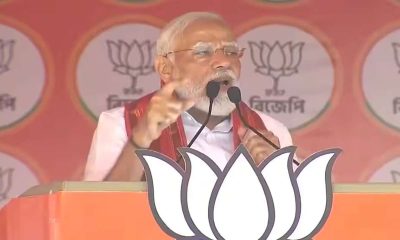
 2024 Lok Sabha Elections21 hours ago
2024 Lok Sabha Elections21 hours agoPM Modi says Congress leaders consider themselves above Lord Ram
-
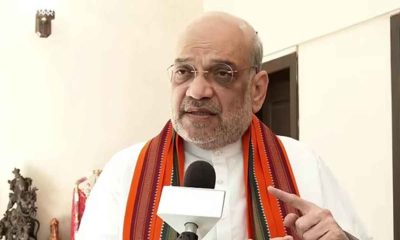
 2024 Lok Sabha Elections23 hours ago
2024 Lok Sabha Elections23 hours agoAmit Shah says neither Congress nor Trinamool chief Mamata Banerjee can interfere with CAA
-

 Trending22 hours ago
Trending22 hours agoDolly Chaiwala sips coffee atop Burj Khalifa, video goes viral
-

 Trending21 hours ago
Trending21 hours agoNexon owner replaces broken side mirror with a plastic mirror, social media users say epic moment
-
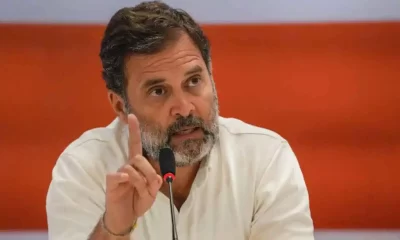
 2024 Lok Sabha Elections3 hours ago
2024 Lok Sabha Elections3 hours agoRahul Gandhi clarifies on wealth survey remark, says aim is to identify injustice
-
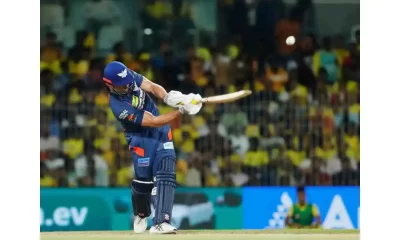
 Cricket news5 hours ago
Cricket news5 hours agoIPL 2024: Marcus Stoinis hits first IPL century as Lucknow Super Giants beat Chennai Super Kings by 6 wickets
-
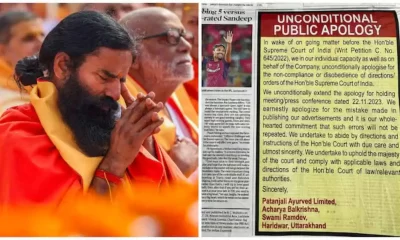
 India News3 hours ago
India News3 hours agoRamdev, Balkrishna publish bigger apology in newspapers after Supreme Court’s rap

